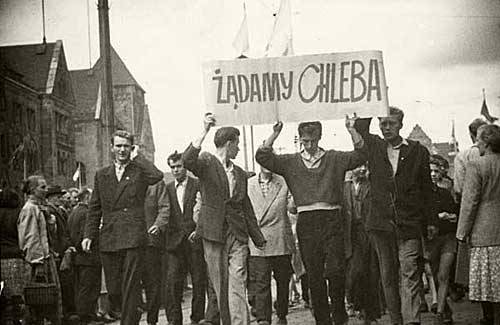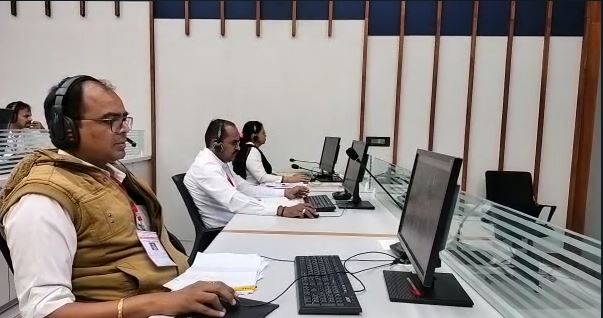
Was the West lulled into a wrong feeling of security by the expansion of NATO and the EU in Europe submit the tumble of the Soviet Union?
“A gentleman who is applied to performing in a single way hardly ever improvements he have to occur to ruin when the periods, in transforming, no for a longer period are in harmony with his ways” – Niccolo Machiavelli
It goes without the need of declaring that Russia’s invasion of Ukraine is an unjustified travesty, a breach of human legal rights and that Putin is a mad dictator. But this write-up isn’t about how undesirable/unjustified/reprehensible the war on Ukraine is – it’s an analysis of the scenario, and what may perhaps have prevented it, by wanting by way of a lens of realpolitik.
To start, let’s go back again in time. On the night of Christmas Day 1991, the guards lowered the Soviet “hammer and sickle” flag in Purple Square and replaced it with Russian tricolour. As the sunshine set, both of those literally and figuratively on the Russian Empire, so as well was Russia’s global pre-eminence extinguished. Prior to its dissolution, the Soviet Union was the next or third-largest economic system in the environment. Its navy was second only to the United States and it wielded major political impact, from Communist Cuba, to North Korea.
In 1999 at the Washington Summit, quite a few months right before Vladimir Putin grew to become performing President of Russia (on 31 December) Poland, Hungary and the Czech Republic joined NATO, irrespective of Russian opposition. The Baltics and several other Jap European international locations would comply with in 2004, bringing the world’s most effective navy alliance right to Russia’s doorstep. All this happened although Russia was at its weakest, its GDP (PPP) about 50 percent that of Germany’s (these days they are broadly related), its economic climate restructured from the Soviet system, and the army was underfunded as a outcome of the financial crisis. Primary this weakened nation, was a man who in 2005 explained the dissolution of the Soviet Union as “the greatest geopolitical catastrophe of the century.”
“If an harm has to be performed to a person it should be so extreme that his vengeance require not be feared” – Niccolo Machiavelli
From a realpolitik perspective – the period article-1990 was the opportune time to grow NATO. Russia was at its weakest and could do comparatively minor to prevent the enlargement – it experienced much too numerous internal problems to worry about.
This notwithstanding, it is worthwhile observing that even at this time, certain aspects in just Russia appeared, on stability, to understand the expansion of NATO as a menace. There is some proof to propose that the West may possibly have furnished Russia assurance that NATO would not grow as a lot as it ultimately did. US Secretary of State James Baker was famously said to have confident Gorbachev that NATO would broaden “not one particular inch eastward”.
This argument is a bit theoretical, however. From a realpolitik point of view, it was the appropriate time to develop and be certain that Russia, an inherently strong place thanks to its inhabitants and sources, would obtain it much a lot more tricky to ever become a danger once again. Threads of realpolitik and self-fascination can be found in the procedures of US Administrations of the time. Officers of the Bush Administration (1989-1993) appeared keen to extend US impact.Under the Clinton Administration, Secretary of Point out Madeline Albright seems to recognise the foreseeable future menace that Russia could pose, and the job NATO could engage in in lowering that threat, noting in testimony before the US Senate that the United States:
“could not ‘dismiss the risk that Russia could return to the styles of the earlier. Consequently, enlarging NATO assisted in ‘closing the avenue to extra harmful options in Russia’s future”
If this was the strategy, it labored. The prospect of Russia at any time turning into a state approximating the military and financial electricity of the Soviet Union is relatively dim specified the degree of political and financial integration in between most of the nations around the world in Russia’s former sphere of influence and NATO/the EU.
What do Ga and Ukraine have in prevalent?
4 points,
-
Aspirations to sign up for NATO (engaged in ongoing dialogue)
-
Borders with Russia
-
Failure to be a part of NATO prior to 2004
-
Ongoing territorial disputes with Russia
It is obvious that these factors are all correlated, with a single contributing to the other. Ukraine and Georgia both equally tried to sign up for the bash late, so to communicate, as regards to NATO. Georgia “turned Westward” subsequent the Rose Revolution in 2003, pursuing a pro-Western foreign coverage and NATO membership. Russia invaded 5 several years later on in 2008, and credits the war with reducing the prospect of Georgia becoming a member of NATO. The circumstance in Ukraine (Euromaidan Uprising, 2013-2014), adopted by seizure of Crimea, can be observed in the exact same context.
Publish the early 2000’s, Russia was in a noticeably different put than the 1990’s – when Poland, the Baltics and other essential Jap European nations commenced conversations to join NATO. By 2008, Russia had largely received a prolonged, bloody war/insurgency in Chechnya and its financial system and defence paying had elevated circa 5-fold from 2000. Russian trade with Europe experienced also expanded, with crucial gas exports expanding practically 7-moments among 2000 & 2008, and expanding further more because then. Suffice to say that Russia was in a a lot more powerful place to assert its countrywide interests (justified or not), and it truly is clear that the Kremlin didn’t see the professional-Western orientation of Georgian, and then Ukrainian Governments as in Russia’s countrywide desire.
It can be worthwhile observing that Russia performing to “protect its interests” (rightly or wrongly) in close by international locations is not an anathema to a nation these types of as the US. US foreign policy has normally veered in the direction of counting the Americas as component of the US “sphere of influence”. A idea underpinned by extensive-standing, and commonly reinterpreted tenets this sort of as the Monroe Doctrine. Nor has the US been a stranger to overthrowing democratically elected Governments to guard its passions – throughout the Cold War the United States acted to overthrow a quantity of democratically elected Marxist Governments in South The usa, showing up to desire proper-wing dictators to left-wing democratically elected leaders. The point is – the US really should have recognised the danger posed by Russia presented its possess historic conduct.
“Wisdom is composed of being aware of how to distinguish the nature of the difficulty, and in selecting the lesser evil” – Niccolo Machiavelli
Focussing specially on the current Russo-Ukrainian War, the discussion earlier mentioned implies that maybe NATO (and the EU for that matter) could, or ought to, have managed the situation in different ways adhering to Russia’s re-emergence as a powerful region in the early 2000’s. Rebutting the prospect of NATO/EU membership for Ukraine at any place prior to 17 February 2022 could have compelled Ukrainian political elites to undertake a balanced solution of enhancing ties to the West, to the extent attainable, although also placating Moscow. With the prospect of NATO or EU membership taken off the table, Ukraine could have become a type of buffer point out and war could have been averted.
We may well go one move even more and advise that NATO did a disservice to Ukraine (and Ga) by keeping out the prospect of membership in the manner it did. In NATO’s 2008 Bucharest Summit, a Summit attended by Putin, NATO welcomed the prospect of membership for Ga and Ukraine and agreed “these countries will become members of NATO”. In the 2021 Brussel’s summit NATO’s leaders reiterated that Ukraine would ultimately turn out to be a member of the alliance.
To be crystal clear after once more – on no degree does the creator concur with Russia’s invasion of Ukraine from a ethical or geopolitical point of view. All nations have the suitable to self-dedication and the attempts of Zelenskyy and the Ukrainian individuals are entitled to the highest respect.
However… to use nevertheless a further Machiavelli quote in this post – “Politics have no relation to morals.” Primarily soon after the Georgian War in 2008, potentially NATO must have witnessed that further more enlargement of the alliance would serve to antagonise Russia and raise the prospect of war in Europe. In this context, publically holding out the prospect of membership to Ukraine, in the absence of a membership option that would preserve Russia content, is arguably irresponsible. Right after all, NATO would under no circumstances have put boots on the ground to protect Ukraine in the absence of it getting membership, and it looks obvious that Russia was normally going to invade prior to membership staying acquired. Potentially in the geopolitical context of the instances, Ukraine’s efforts to be part of NATO ended up usually for nought and served to make war inevitable.
▼▼ Thank you for looking through. You should share employing the back links underneath. ▼▼




More Stories
The English PROPHECY US DESTINY: The famous medium predicted the outcome of the match Serbia
Kyiv’s Mayor Warns Residents To Prepare For A Total Absence Of Electricity, Water, Drainage And Heat
Virginia Criminal Lawyer: Your Guide to Legal Representation in Virginia